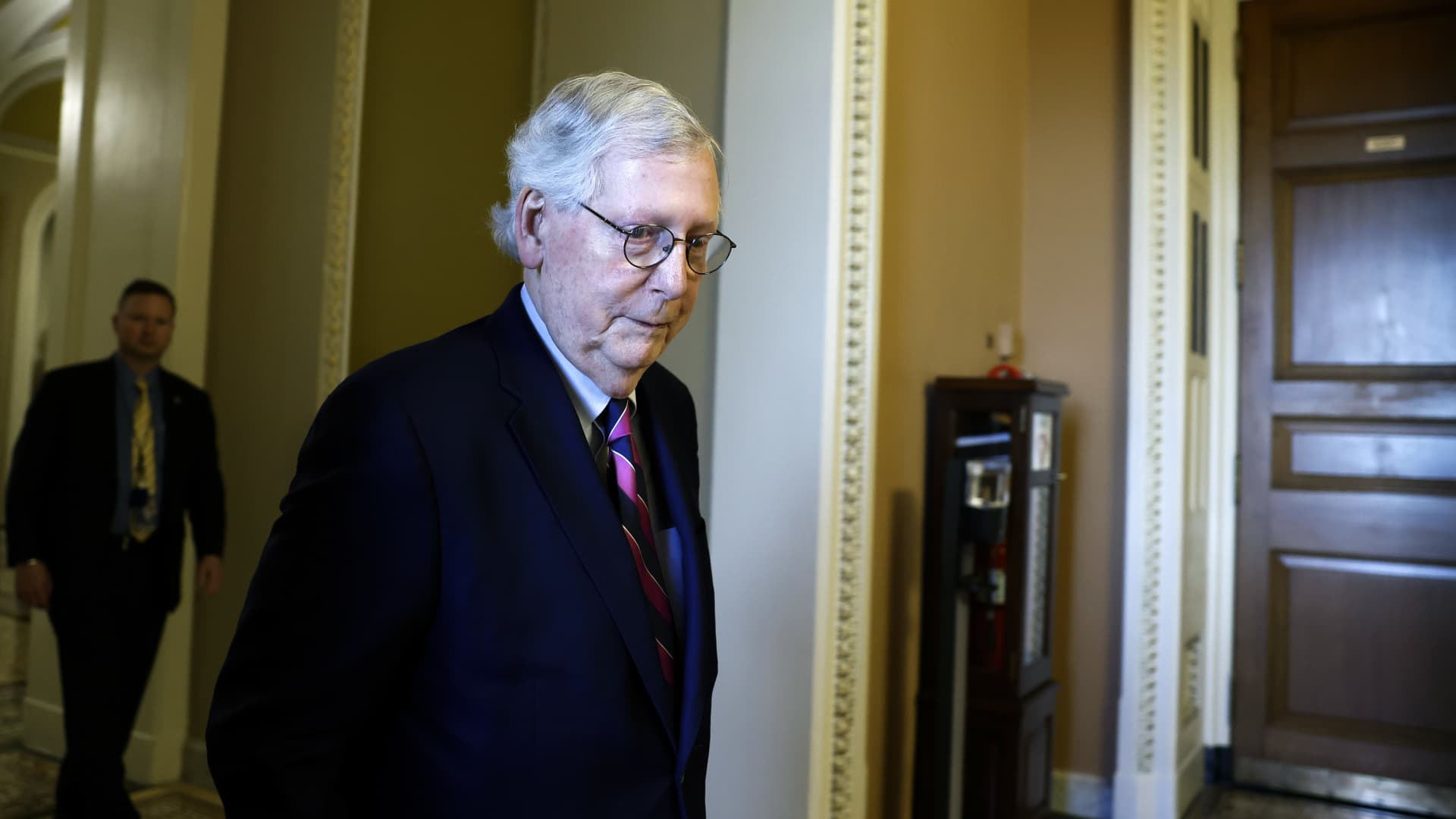Dozens of Republican members of Congress have filed briefs with the U.S. Supreme Court, arguing that the Biden administration’s student loan forgiveness plan should be ruled unlawful.
“Congress authorized the forgiveness of federal student loan debt only in specific, narrow circumstances,” argued the brief filed by more than 40 GOP senators, among them Minority Leader Mitch McConnell. “This is not one of them.”
The Republican senators wrote that the plan threatens “to deprive the Nation of nearly half a trillion dollars, and offend the separation of powers enshrined in the Constitution.”
More from Personal Finance:
64% of Americans are living paycheck to paycheck
What is a ‘rolling recession’ and how does it impact you?
Almost half of Americans think we’re already in a recession
More than half of House Republicans, or 128 legislators, also filed a brief with the country’s highest court, making a similar argument. They say that “petitioners’ assertion of power to forgive every
federal student loan in the country, potentially even a decade after the Covid-19 pandemic ends, raises significant separation of powers concerns.”
The briefs were filed this month as the high court prepares to hear oral arguments, scheduled for Feb. 28, on the student loan forgiveness plan.
In response to a request for comment, a Biden administration official said that “the only thing notable about this brief is that, if these Republican lawmakers get their way, millions of their own constituents will be denied debt relief.”
Opposition to relief is ‘almost entirely Republican’
Looking at the briefs filed with the Supreme Court so far over President Joe Biden’s plan to cancel up to $20,000 in student debt for tens of millions of Americans, it’s clear that this is a highly partisan issue, said higher education expert Mark Kantrowitz.
“The opposition to the president’s plan is almost entirely Republican,” Kantrowitz said.
GOP-led states and conservative groups have brought at least six lawsuits against the sweeping policy, and the court has agreed to hear two of them. For now, the legal troubles have stopped the Biden administration from starting to cancel any student debt, though it had planned to start doing so within months of its August announcement.
The White House has insisted that it’s acting within the law, pointing out that the Heroes Act of 2003 grants the U.S. education secretary the authority to make changes to the federal student loan system during national emergencies. The nation has been operating under an emergency declaration since March 2020 because of the Covid pandemic.
The law is a product of the 9/11 terrorist attacks more than two decades ago, and an earlier version of it had provided relief to federal student loan borrowers who’d been affected by those events.
The Republican senators, in their brief, counter that that law “permits only modest measures to prevent certain individuals from losing ground on their loans due to hardships induced by a war or national emergency.”
However, the Biden administration argues the pandemic financially set back federal student loan borrowers, many of whom were struggling even before the public health crisis began.
Only about half of borrowers were in repayment in 2019, according to an estimate by Kantrowitz. A quarter — or more than 10 million people — were in delinquency or default, and the rest had applied for temporary relief measures, such as deferments or forbearances, for struggling borrowers.
These grim figures led to comparisons to the 2008 mortgage crisis.
U.S. Department of Education Undersecretary James Kvaal said in a recent court filing that if the government isn’t allowed to provide debt relief for federal student loan borrowers, there could be a “historically large increase in the amount of federal student loan delinquency and defaults as a result of the Covid-19 pandemic.”
